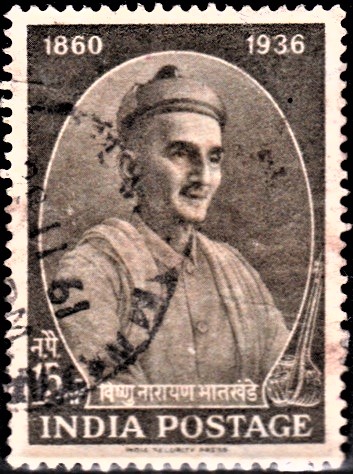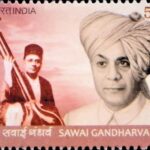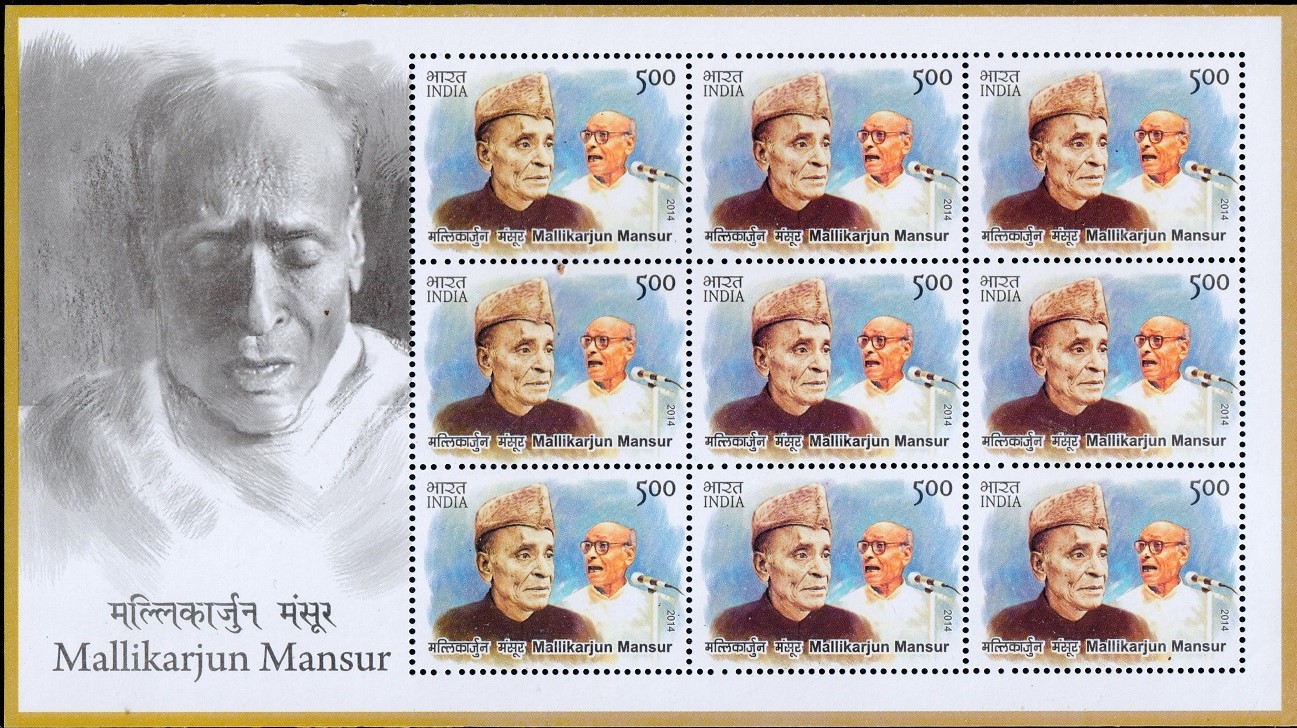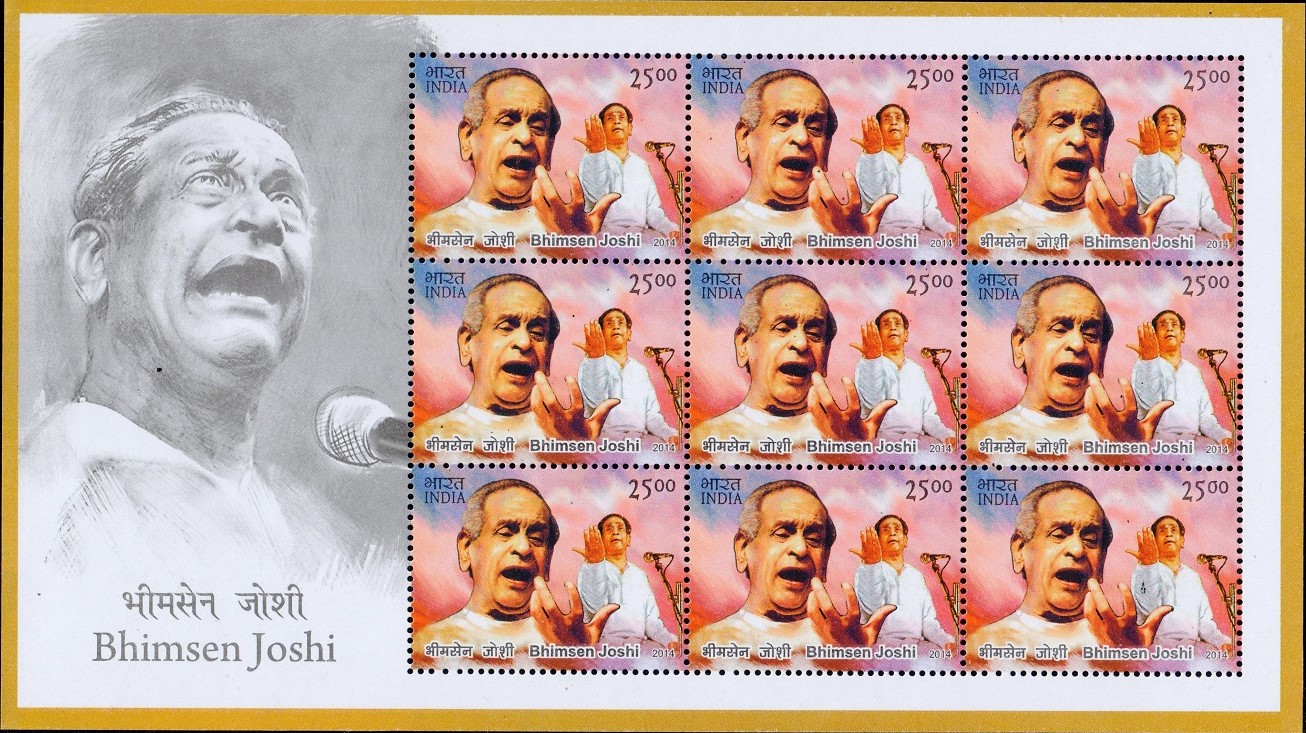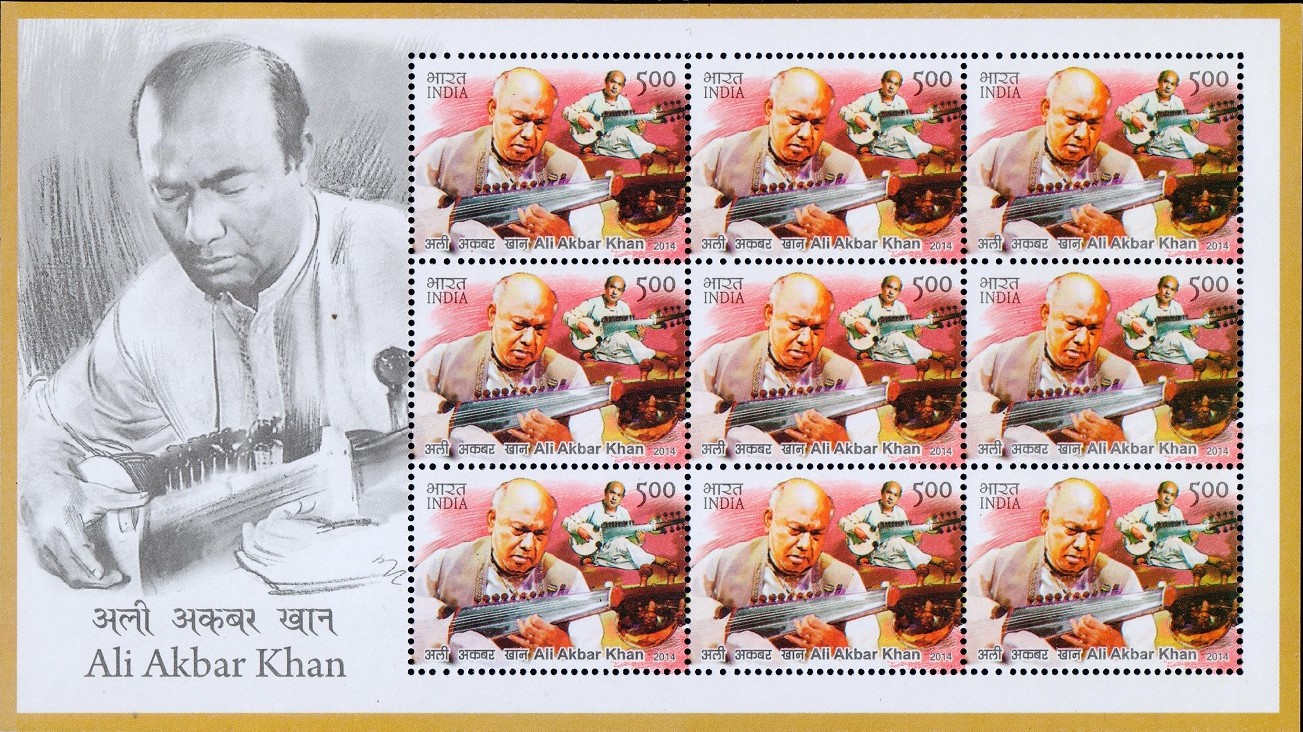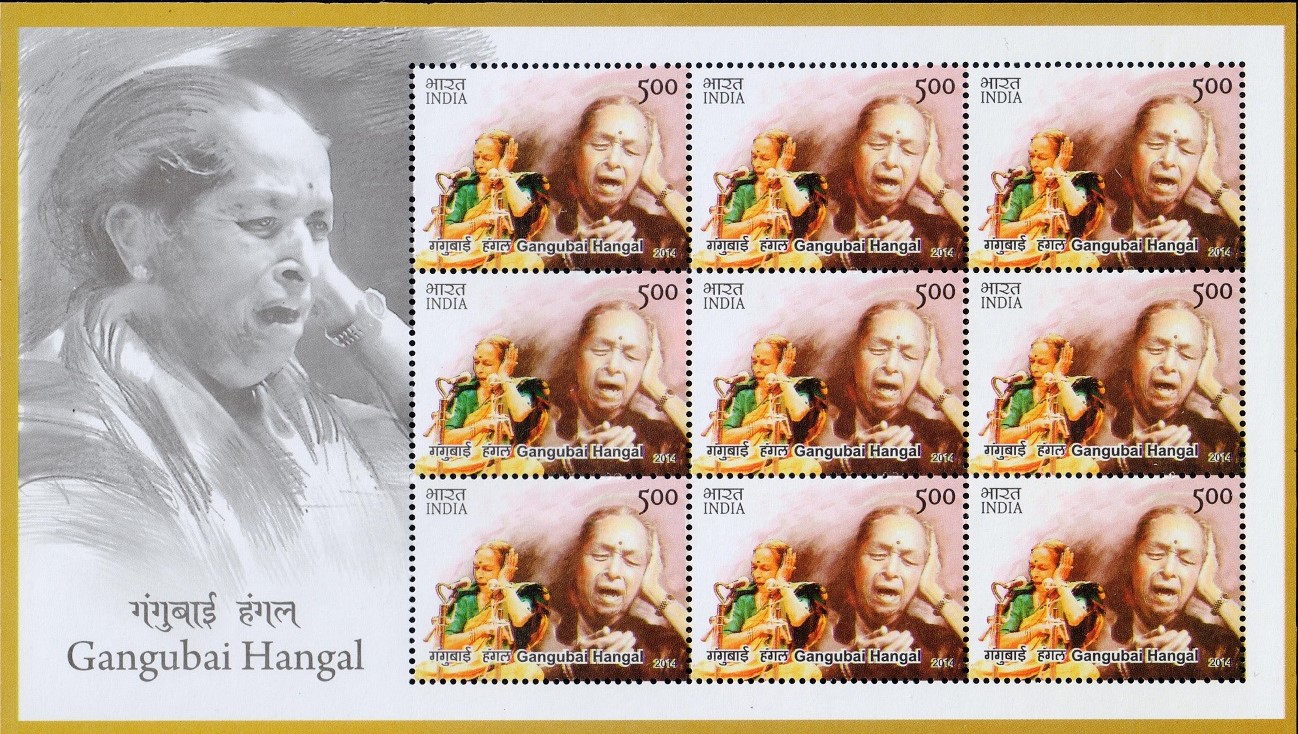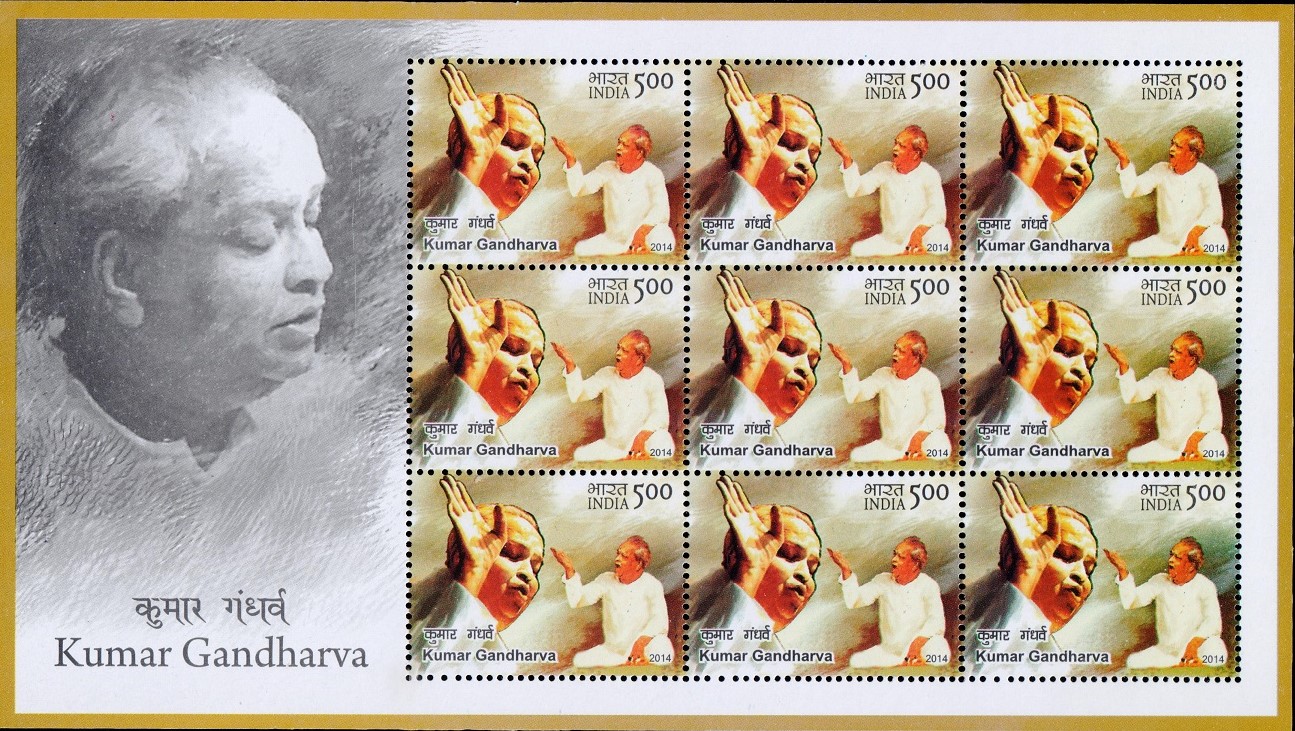
Kumar Gandharva 2014
A commemorative postage stamp on Pandit Kumar Gandharva, an Indian classical vocalist [a part of the series ‘Indian Musicians‘] :


 Issued by India
Issued by India
Issued on Sep 3, 2014
Issued for : There have been many maestros who have nurtured Indian classical music and have made its presence felt in the national and international arena. India Post is paying a tribute to such legendary maestros of Indian Classical Music by releasing a set of eight stamps on Indian Musicians.
Credits :
Stamp/Miniature Sheet/Sheetlets/First Day Cover : Sankha Samanta
Cancellation : Nenu Gupta
Type : Miniature Sheet, Mint Condition
Colour : Multi colour
Denomination : 2500 Paise
Stamps Printed : 0.8 Million
Miniature Sheet : 0.4 Million
Sheetlets : 0.1 Million
Printing Process : Wet Offset
Printer : Security Printing Press, Hyderabad
Name : Shivaputra Siddharamayya Komkalimath
Born on Apr 8, 1924 at Sulebhavi, Belgaum district, Karnataka, India
Died on Jan 12, 1992 at Dewas, Madhya Pradesh, India
About :
- Music has always been an important aspect of Indian life. Classical Music, which is based on ragas, has been the mainstay of the life of the people in the country. Its various forms have been used in movies, music albums, folk songs, etc.
- Indian Classical Music is of two types – Hindustani and Carnatic music. Hindustani music is mainly found in North India. Khayal and Dhrupad are its two main forms. There is a significant amount of Persian influence in Hindustani music in terms of the instruments, style of presentation and ragas. There is also a rich tradition of Gharanas in classical Hindustani Music. Carnatic music, found mainly in South India, tends to be rhythmically intensive and structured when compared with Hindustani Music.
- Kumar Gandharva, or Shivaputra Siddharamayya Komkalimath, a noted Hindustani Classical singer, well known for his unique vocal style, was born on 8th April, 1924 in Belgaum, Karnataka. Kumar Gandharva experimented with other forms of singing such as Nirguni bhajans (Devotional songs), folk songs, and with both ragas and presentation, often going from fast to slow compositions in the same raga. He is remembered for his great legacy of innovation, questioning tradition without rejecting it wholesale, resulting in music in touch with the roots of Indian culture, especially the folk music of Madhya Pradesh. His innovative approach towards music led to the creation of new ragas from combinations of older ragas. The noted singer was awarded Padma Vibhushan in 1990. He died on 12th January, 1992.
- Text : Based on the material provided by Sangeet Natak Akademi and Internet.


